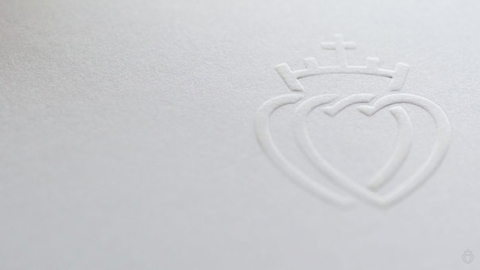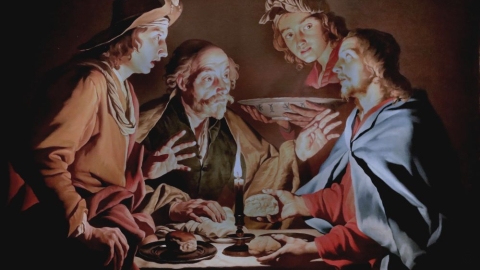Euthanasia: Power over Life and Death

The term euthanasia (Greek for “good death”) signifies the premature execution of the terminally ill. This practice has garnered recent media attention when Belgium extended this civil “right” to its children early in 2014. Now Quebec’s National Assembly is debating whether to vote euthanasia into its provincial code of law. Since euthanasia may soon be a legal reality in Canada, what are Catholics to make of this issue?
Modern proponents of euthanasia generally argue that it provides two main benefits: 1.) it relieves the intense suffering of a terminally ill patient, allowing them to die with dignity, and 2.) it serves the common good by freeing up medical resources for other curable patients. These arguments, however, are false when considered in light of the Catholic faith. Let us see why.
Dying with dignity?
The idea that dying with dignity means dying without prolonged suffering contradicts the example of Christ and the saints, especially the martyrs. Catholicism teaches that suffering is extremely valuable, and that by patiently bearing our sufferings on earth, we can merit an eternal crown in heaven. In fact, suffering well is so essential that Christ insists: “he that does not take up his cross and follow me is not worthy of me” (Matt. 10,38).
Through euthanasia, we deny dying patients the sufferings which God himself has prepared for their sanctification. Often times grave illnesses and their concomitant pains bring souls back to God. In these cases, God directly wills these souls to suffer for their own good and for the good of those around them. It reminds onlookers of the frailty of this earthly life and prompts them to pray for the one suffering. Pain and suffering, then, if understood properly, are great occasions to practice charity, to grow in grace, to reach for heaven.
When modern liberals promote euthanasia, they are seeking to substitute occasions of grace and sanctification with premature death! Let us not reject the cross of Christ, but rather, like him, let us embrace it as the will of our heavenly Father. This is truly to die with Christian dignity.
Serving the common good?
Those suffering from prolonged illness often require significant medical attention, and this can be very expensive for the government. Why can’t the government authorize the execution of terminally ill patients in order to free up these medical resources for other more hopeful cases? Wouldn’t this serve the common good?
There are certain instances in which, historically, Catholic states have executed members of society in order to serve the common good. These cases always include some grave offense to public order and to morality, such as occurs in adultery, witchcraft, heresy, murder, and treason. Notice, however, that in all these cases those executed have committed a heinous public crime. Their severe punishment serves as an example to the rest of society, deterring others from making the same grave mistake.
In the case of euthanasia, however, what public crime have the terminally ill committed? How is it just to execute them? Why are they being punished? To execute someone simply because they impose additional monetary burdens on the rest of society is insane. By this logic, the government could execute all the elderly and disabled who no longer contribute sufficiently to the financial growth of the nation!
But I want to die!
Some will insist that the vast majority of those executed by euthanasia freely choose death, and that this desire, especially considering the intense and prolonged sufferings and the terminal nature of the disease, should not be denied.
This desire, however, seeks nothing other than assisted suicide. The Catholic Church has always taught that suicide is never permissible because through it, the offender usurps God’s sovereign rights over life and death. God providentially prescribed the hour of our birth, and he has also decreed the exact moment of our death. Let us not presume to take these hidden, weighty matters into our own hands, otherwise we jeopardize God’s loving plan for our salvation.
Supporting euthanasia is a mortal sin
If we consent to euthanasia in any way, we sin gravely. We are essentially encouraging our neighbor to commit suicide, and we share in the guilt of this act. Let us pray for our Canadian legislators that they do not enshrine yet another sin within our law codes.



